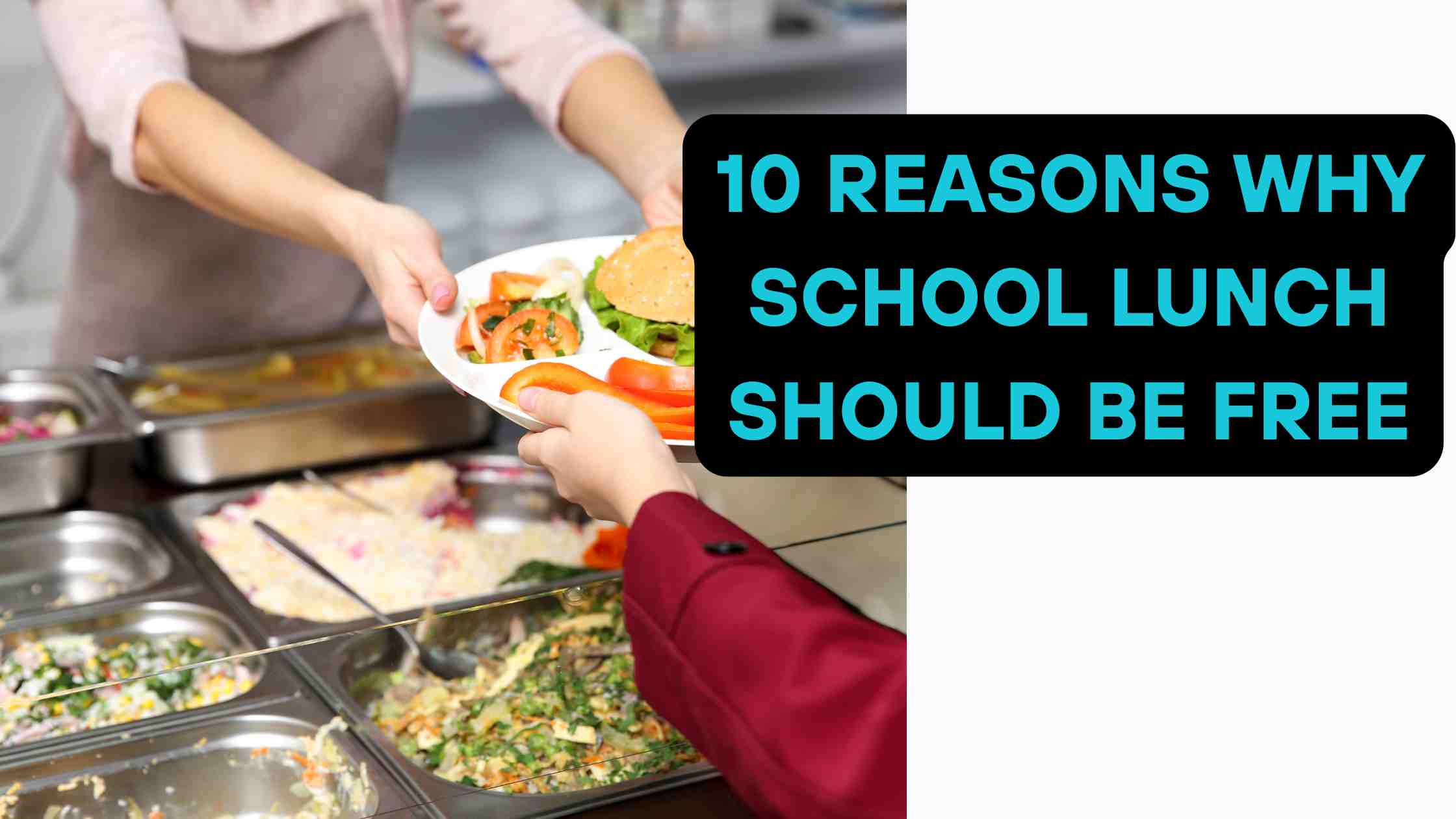
10 Reasons Why School Lunch Should Be Free
Have you ever watched a child hesitate in the lunch line—not because they’re picky, but because they can’t afford the food? I have. And it’s heartbreaking.
That moment alone is enough to convince me that school lunch should be free for every student in America.
We often talk about education as a right. But how can we expect kids to focus, learn, and thrive when they’re hungry? Why should a child’s ability to eat depend on their family’s income?
Table of Contents
- Read our trending blogs on school is important and why homework should be banned, or reasons students should not wear uniforms
This isn’t just about kindness. It’s about equality, public health, and academic success. Let’s explore 10 powerful reasons why free school lunch is something we should all get behind.
1. No Child Should Learn on an Empty Stomach
Hungry kids can’t concentrate. It’s that simple.
- Low blood sugar leads to fatigue, irritability, and poor memory
- Learning becomes a struggle
- Even the best lesson plans fall flat when kids are thinking about food
Free lunch in schools ensures that every student has the basic fuel they need to function and learn.
2. Eliminates the Stigma of “Free Lunch”
In schools where only low-income students get free lunch, there’s a social divide.
Kids notice who gets the “special” lunch and who doesn’t. That can:
- Lead to bullying or shame
- Discourage eligible students from signing up at all
- Create lifelong insecurities around food and money
But when everyone gets free lunch, no one stands out. The stigma disappears.
3. Boosts Academic Performance
There’s a direct link between nutrition and academic achievement.
Students who eat regular, balanced meals:
- Score better on tests
- Pay more attention in class
- Have higher attendance rates
In short, free school lunch isn’t just food—it’s an investment in education.
4. Reduces Family Financial Stress
Let’s face it: groceries are expensive.
For families living paycheck to paycheck, even $3 per day per child adds up. That’s over $500 a year per student.
Providing free lunch in schools can:
- Lighten the financial burden on struggling families
- Help parents focus on other basic needs
- Improve overall household wellbeing
5. Supports Public Health
Many school lunch programs offer healthier meals than what some students eat at home.
- Fruits, vegetables, lean proteins
- Nutritional guidelines monitored by professionals
Free school lunches are a tool to combat:
- Childhood obesity
- Malnutrition
- Long-term health disparities
6. Improves Behavior and Classroom Climate
Hungry kids are often cranky, distracted, or even disruptive.
But when every child is fed?
- Fewer behavior problems
- Calmer classrooms
- More positive learning environments
Teachers benefit. Students benefit. The whole school improves.
7. Increases Attendance and Punctuality
Students are more likely to attend and arrive on time when they know food is waiting.
For some children, school lunch is their only real meal of the day. That’s a strong incentive to show up.
Better attendance means:
- Less falling behind
- Higher graduation rates
- Stronger communities
8. Helps Break the Cycle of Poverty
When children are fed and educated, their futures shift.
Free lunch programs can contribute to:
- Better school performance
- Higher earning potential later in life
- A greater chance to rise above generational poverty
It’s not just a meal. It’s a step toward economic mobility.
9. Reduces Administrative Burden
When schools don’t have to manage payment collection or free/reduced-lunch applications:
- Staff save time
- Fewer errors happen
- Resources can be redirected to support learning
Making school lunch free for all cuts red tape and streamlines the process.
10. It’s a Human Right, Not a Privilege
Food is a basic human need. Just like air, water, and shelter.
If we believe every child deserves a free education, why not free meals during that education?
No child chooses their family’s income.
No child should suffer because of it.
And no one—especially not a growing child—should go hungry at school.
Final Thoughts
So, what have we seen?
We’ve seen how free school lunch helps students focus, reduces bullying, boosts test scores, and supports both mental and physical health. We’ve seen how it helps families, improves communities, and lays the foundation for long-term success.
Most importantly, we’ve recognized that this isn’t about charity—it’s about justice.
If we care about children, education, or fairness at all, we need to care about what’s on the tray in the cafeteria. Because that tray might hold the key to a better future.
Cite this article
You can copy and paste your preferred citation format below.
Martin, L. & Arquette, E.. (2025, May 11). 10 Reasons Why School Lunch Should Be Free. Coursepivot.com. https://coursepivot.com/blog/10-reasons-why-school-lunch-should-be-free/



